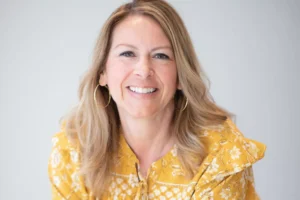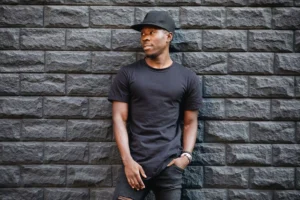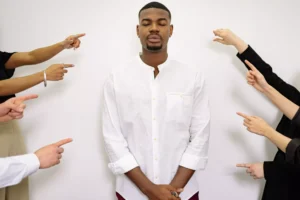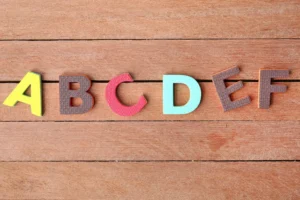When my brother and I took piano lessons as kids, we always fought over who would get to tell Ms. Beth their latest story. It didn’t matter what it was about — something funny our dog did or some dramatic piece we enacted with our Lego people — she always wanted to hear it.
Ms. Beth was no-nonsense about piano and let us know when we didn’t practice enough (which was most of the time), but she always listened fully to whatever we told her, accenting our stories with genuine questions or even a “Holy cow!” every now and then. We felt heard, listened to, seen.
Lend me your ear
People who clearly prioritize others inspire me. They’re easy to spot: the way they focus on whoever they are talking with, asking questions to draw out more from the person without seeming to want to air their own opinions. Prioritizing others starts with listening well. I have friends who are much better at this than I am. When a friend calls unexpectedly, all too often I find myself mentally adjusting my schedule or thinking of my to-do list during lulls in conversation. I want to prioritize intentional relationships and be a fantastic listener, but how do I make space for prioritizing relationships in my life?
A few barriers
Sometimes the first step to reaching a goal is identifying what is blocking our way. There can be many reasons we struggle to listen to the people in our lives. Here are a few:
Multitasking. Just the other day, I was talking on the phone with a friend and started to open my Facebook app as we talked. I stopped myself; this was not the time to mindlessly check my notifications. Some distractions are unavoidable, as our friends with small children will point out. But the more we can ignore distractions while talking with others, the more we will be able to focus fully on what they are sharing with us. Simple, but easy to forget.
Oversharing. When a friend tells me a story, too often I follow with a story of my own. Instead of asking for more details about their experience or probing for more about who they are, I’m following suit with my own story. This is a self-centered move. I’m not trying to one-up them (and I usually don’t, anyway), but I’m too quick to turn the conversation back to myself.
Disorganization. Oh, how this one hits home! Try as I might, I have never been organized in any area of my life. But when our schedules are disorganized, it can throw an extra kink into our well-intentioned plans to be present for others. There is no shortcut; developing and maintaining relationships takes time. When we let our tasks expand to fill the time allotted and our schedules overflow with our responsibilities, we crowd out our opportunities to get to know people better.
Clearing the clutter
Once we’ve identified which barrier is primarily blocking our way, we can try simple ways to deepen relationships with friends and be better listeners. Consider a few of these ideas:
Focus. Set aside your phone. While our digital devices shouldn’t take all the blame for our relationship disconnects, they’re a good place to start. Sometimes we really do need to be available via our devices, but when possible leave it in another room. Even putting it on silent while leaving it within arm’s reach may not be enough. Physically remove it from your reach. Focus on the people in front of you.
Ask questions. You may think of a really good story to keep the conversation moving, and that’s OK; there’s a place for sharing our own stories. But try holding back, at least at first, and probe your friend for more about the story they just shared with you. Ask why they think that memory is significant to them. Have they ever experienced anything like that again? Who was with them when the event happened? Did they learn anything about themselves or others?
As a sidenote, don’t expect your friends to immediately reciprocate or match your interest in their stories with the same level of interest in yours. They may not be thinking intentionally about this right now, and that’s also OK. As Bob Goff said in his book “Everybody Always,” “The fact is, what skews my view of people … is that God is working on different things in their lives than He is working on in mine.”
Don’t procrastinate. I said it earlier, but it’s true: Work expands to fill the time allotted. If you find yourself always rushing to the next item on your to-do list, maybe it’s time to work on the priorities and responsibilities you already have before trying to add another. Get things done early so you can slow down when a friend needs you to. Intentionally build in margin by planning to be ahead of schedule.
Why friendship is worth it
Relationships take work. Time. Effort. Intentionality. But we will eventually find that our efforts are worth it. And for Christians, we have more grounding our work than just a desire to be a better friend or listener.
“We love because He first loved us,” the apostle John wrote. God’s love grounds us, giving us the freedom and ability to love others the way He loves us. It’s a tall order, but one that comes with grace and help. — and we can be sure that our Savior who calls us His friends will help us be deeper friends with others.
Copyright 2022 Lauren Dunn. All rights reserved.










